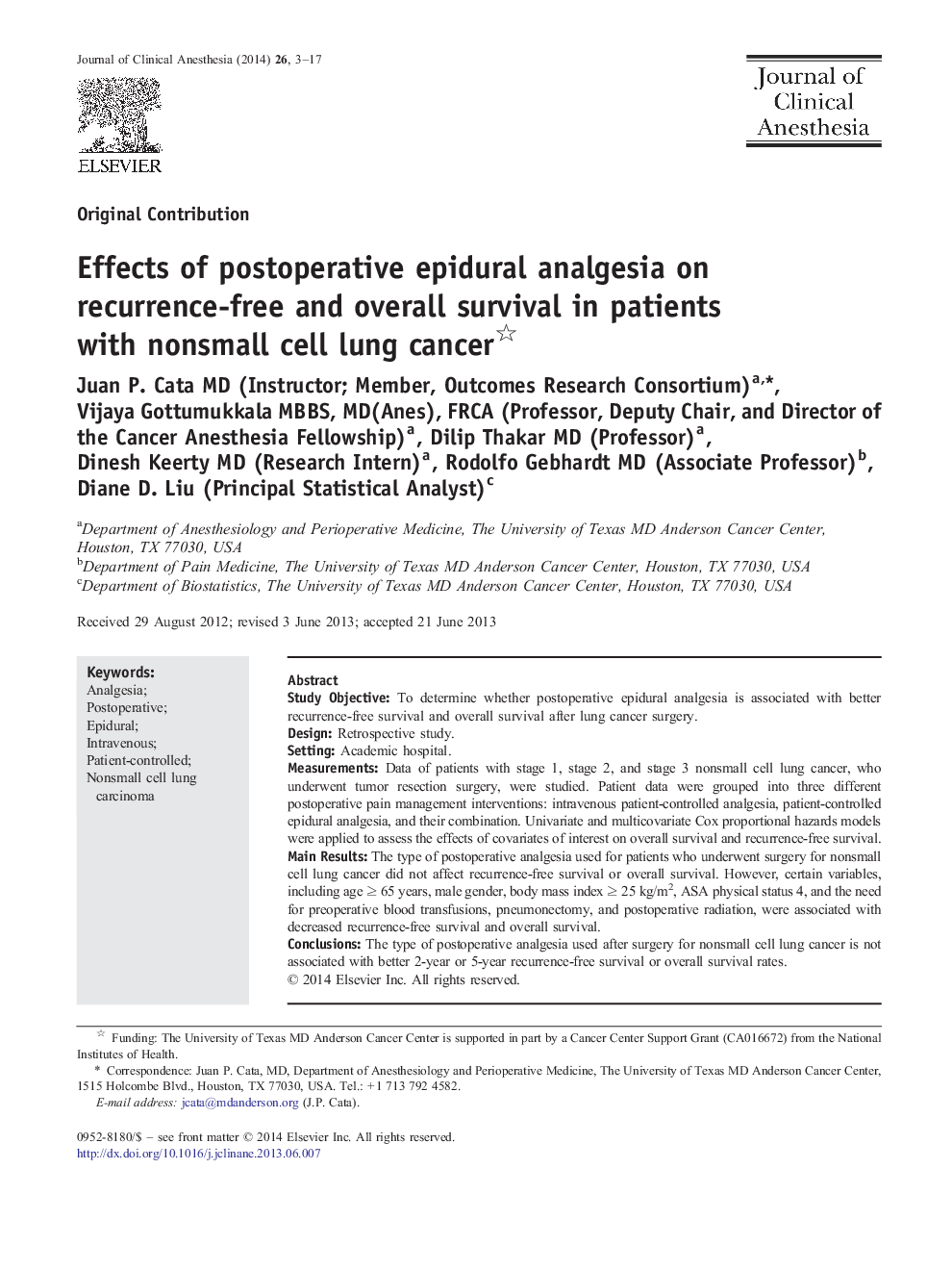| Article ID | Journal | Published Year | Pages | File Type |
|---|---|---|---|---|
| 2762437 | Journal of Clinical Anesthesia | 2014 | 15 Pages |
Study ObjectiveTo determine whether postoperative epidural analgesia is associated with better recurrence-free survival and overall survival after lung cancer surgery.DesignRetrospective study.SettingAcademic hospital.MeasurementsData of patients with stage 1, stage 2, and stage 3 nonsmall cell lung cancer, who underwent tumor resection surgery, were studied. Patient data were grouped into three different postoperative pain management interventions: intravenous patient-controlled analgesia, patient-controlled epidural analgesia, and their combination. Univariate and multicovariate Cox proportional hazards models were applied to assess the effects of covariates of interest on overall survival and recurrence-free survival.Main ResultsThe type of postoperative analgesia used for patients who underwent surgery for nonsmall cell lung cancer did not affect recurrence-free survival or overall survival. However, certain variables, including age ≥ 65 years, male gender, body mass index ≥ 25 kg/m2, ASA physical status 4, and the need for preoperative blood transfusions, pneumonectomy, and postoperative radiation, were associated with decreased recurrence-free survival and overall survival.ConclusionsThe type of postoperative analgesia used after surgery for nonsmall cell lung cancer is not associated with better 2-year or 5-year recurrence-free survival or overall survival rates.
